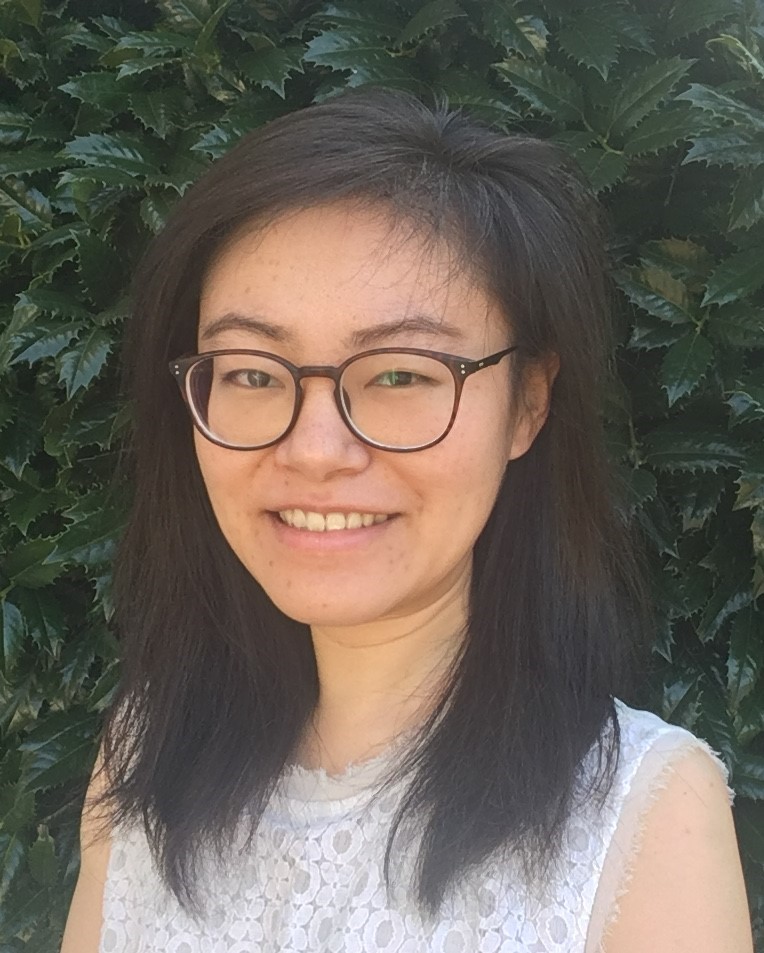
Shuwen Yue
Biography
Group website:yuegroup.cbe.cornell.edu
Shuwen Yue joined the Smith School of Chemical and Biomolecular Engineering in the Summer of 2023. She received a B.S. dual degree in Chemical Engineering and Chemistry from the University of Alabama in 2016. Shuwen then received her Ph.D. in Chemical and Biological Engineering from Princeton University in 2021, where she worked on developing machine learning potentials for molecular fluids with Athanassios Z. Panagiotopoulos. She then conducted postdoctoral research in the Department of Chemical Engineering at MIT on machine learning for materials with Heather J. Kulik.
Research Interests
Water is arguably the most important molecule in the physical and life sciences. Its structure, dynamics, and interaction with solutes and surfaces control how energy is generated and stored, dictate the separation of pollutants from clean drinking water, and govern the delivery of drugs efficiently inside living things, just to name a few. Our group seeks to uncover the intricate relationships of water on the molecular scale in order to design better materials and solvents for energy and sustainability technologies. To do this, we apply tools in multi-scale modeling, machine learning, and statistical mechanics.
- Computational Science and Engineering
- Artificial Intelligence
- Statistical Mechanics and Molecular Simulation
- Statistics and Machine Learning
- Complex Fluids and Polymers
- Energy and the Environment
Selected Publications
Yue, S.*, Muniz, M. C.*, Andrade, M. F. C., Zhang, L., Car, R., and Panagiotopoulos, A. Z. When do short-range atomistic machine-learning models fall short? Journal of Chemical Physics. (2021). 154, 034111.
Zhang, C., Yue, S., Panagiotopoulos, A. Z., Klein, M. L., and Wu, X. Dissolving salt is not equivalent to applying a pressure on water. Nature Communications. (2022). 13, 822.
Zhang, C., Yue, S., Panagiotopoulos, A. Z., Klein, M. L., and Wu, X. Why dissolving salt in water decreases its dielectric permittivity. Physical Review Letters. (2023). 2304893.
Yue, S., Oh, C., Nandy, A., Terrones, G. G., and Kulik, H. J. Effect of MOF linker rotation and functionalization on methane uptake and diffusion. Molecular Systems Design & Engineering. (2023). 8, 527-537.
Yue, S. and Panagiotopoulos, A. Z. Dynamic Properties of Aqueous Electrolyte Solutions from Nonpolarisable, Polarisable, and Scaled-Charge Models. Molecular Physics. (2019). 117 (23-24), pp 3538-3549.
Roh, H., Yue, S., Hu. H., Chen, K., Kulik, H. J., Gumyusenge, A. Leveraging Polymer Electrochromism for Organic Electrochemical Synaptic Devices. Advanced Functional Materials. (2023). 2304893.
Nandy, A., Yue, S., Oh, C., Duan, C., Terrones, G. G., Chung, Y. G., and Kulik, H. J. A database of ultrastable MOFs reassembled from stable fragments with machine learning models. Matter. (2023). 6, 5, 1585-1603.
Yue, S., Riera, M.*, Ghosh, R.*, Panagiotopoulos, A. Z., and Paesani, F. Transferability of data-driven, many-body models for CO2 simulations in the vapor and liquid phases. Journal of Chemical Physics. (2022). 156, 104530.
Selected Awards and Honors
Scialog Fellow, Sustainable Minerals, Metals, and Materials (SM3), 2024
Best Poster Award, FOMMS, 2022
WCC Merck Award, The American Chemical Society, 2020
Best Talk in Computational Modeling, Princeton CBE, 2019
Mary and Randall Hack ‘69 Graduate Award, Princeton University, 2019
Francis Robbins Upton Fellowship, Princeton University, 2016
Tau Beta Pi Fellowship, 2016
Tau Beta Pi Scholarship, 2015
Education
B.S. Chemical Engineering & Chemistry, The University of Alabama, 2016
Ph.D. Chemical & Biological Engineering, Princeton University, 2021
Postdoctoral Associate, Massachusetts Institute of Technology, 2023


